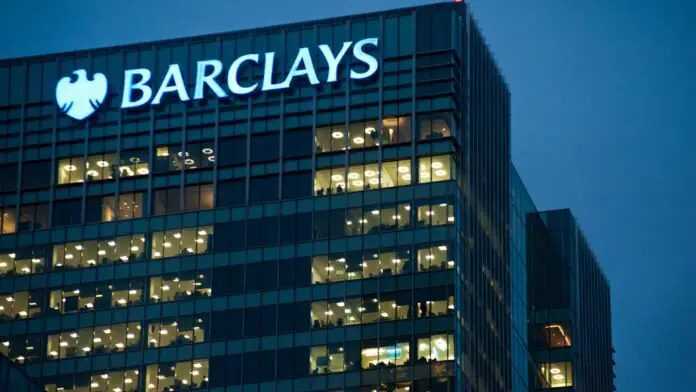Staff Reporter
Analysts at Barclays predict that the Eurozone is likely to enter a recession in the latter half of 2025, despite a temporary 90-day pause on U.S. President Donald Trump’s extensive tariffs.
In a report to clients, lead analyst Silvia Ardagna emphasized that they are awaiting further updates on the negotiations surrounding Trump’s tariff strategy “before reassessing the impact” of these policy changes on the Eurozone’s economic performance.
This outlook coincides with expectations that the European Central Bank (ECB) will reduce its key deposit rate by 25 basis points to 2.25% in an upcoming meeting. Analysts point to increasing growth risks and signs of stabilizing inflation in the Eurozone as key reasons for a potential cut in borrowing costs.
Trump had imposed a 20% tariff on the European Union but later postponed its implementation. The EU continues to face a universal 10% tariff, along with a 25% duty on steel, aluminum, and automobiles.
Barclays strategists noted, “We anticipate that the ECB will adjust its assessment of policy restrictions, indicating that rates are at the upper limit of staff estimates of the nominal neutral rate, while remaining noncommittal about future rate paths. The appropriate policy stance will be determined on a meeting-by-meeting basis.”
Some analysts suggest that the ECB may be inclined to lower borrowing costs below 2% later this year, depending on the direction of Trump’s tariff policies. Concerns are growing within the ECB that the bloc’s economy, already grappling with sluggish activity before the tariffs, could suffer significantly from the new U.S. duties. Last week, Olli Rehn, governor of the Bank of Finland and ECB policymaker, stated that Trump’s trade actions have heightened downside risks.
In a note to clients, analysts at Capital Economics warned that “higher U.S. tariffs will pose a substantial drag on the Eurozone economy this year.”

